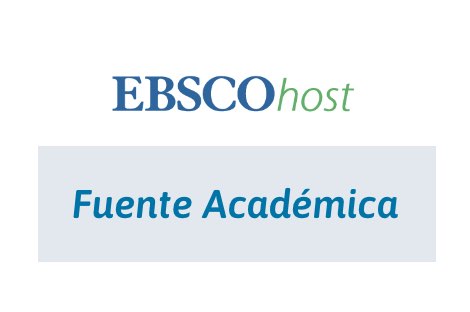Praxis, Freedom and Affections: On the “supra-nature” of the Will in Duns Scotus
DOI:
https://doi.org/10.48162/rev.35.014Keywords:
Aristotle, Duns Scotus, freedom, Will, natureAbstract
In dealing with the will, Scotus and Aristotle are not so far that Scotus himself denies their continuity, nor so close that he avoids reinterpreting the Aristotelian notion of prohaíresis in light of the Christian philosophy of freedom. His reinterpretaion consists in conceiving the will as a rational power, that is to say, free, and the intellect as a natural power. In this paper we will insist on this continuity and discontinuity in the following order: 1) we will show to what extent Scotus’s will goes beyond intellection and, in that sense, “nature”, focusing on the cases of incontinence and negligent omissions; 2) we will trace the structure of the Scotist will, following and answering Barnwell; 3) we will later study the freedom of the will, as Scotus understands it, mainly in his commentary on Metaphysics IX and, finally, 4) we will return to the influence of passions and the habits on the will for determining what is good. Our purpose is to show that Scotus takes up Aristotelian formulations to show how the will is a properly rational appetite, i.e. pace Aristotle, not properly an appetite.
References
Agustín, La ciudad de Dios. Madrid: Biblioteca de Autores Cristianos, 2009.
Aristóteles, Ética a Nicómaco. Madrid: Centro de Estudios Políticos y Constitucionales, 2018.
Barnwell, Michael. The Problem of Negligent Omissions: Medieval Theories of Action to the Rescue. Leiden: Brill, 2010.
Boler, John. “Transcending the Natural: Duns Scotus on the Two Affections of the Will”. American Catholic Philosophical Quarterly 67, n.° 1 (1993): 109-126.
Cress, Donald A. “The ‘Coloratio’ by Duns Scotus of the ‘Ratio Anselmi’ and Vindobon. 1453”. Modern Schoolman 54, n.° 1 (1976): 33-43.
Cuccia, Emiliano J. “Primacía de la voluntad y virtud moral en Juan Duns Escoto”. Tópicos n.° 43 (2012): 153-172.
Dahl, Norman O. “Aristotle on Action, Practical Reason, and Weakness of the Will”, en A Companion to Aristotle, editado por Georgios Anagnostopoulos, 498-511. MA: Wiley-Blackwell, 2009.
Duns Escoto, J. Opera Omnia, edición Vaticana edita por Carl Balić et al. Ciudad del Vaticano: Typis Polyglottis Vaticanis, 1950-2013.
Duns Escoto, J. Tratado sobre el prmier principio, editado Félix Alluntis. Madrid: Editorial Católica, 1989.
Duns Escoto, J. Obras del Doctor Sutil Juan Duns Escoto: cuestiones cuodlibetales, Madrid: Biblioteca de Autores Cristianos, 1968.
Duns Escoto, J. Opera Philosophica, editada por Girard J. Etzkorn y Timothy B. Noone. St. Bonaventure, New York: The Franciscan Institute, 1997-2006.
Pseudo-Dionisio Areopagita. Corpus Dionysiacum II. De Gruyter, 1991.
Dostoievski, Fiódor. Los hermanos Karamazov. España: Verbum, 2020.
Drummond, Ian C. “John Duns Scotus on the Role of the Moral Virtues”, tesis doctoral, University of Toronto, 2016.
Dumont, Stephen. “The Origin of Scotus’s Theory of Synchronic Contingency”. Modern Schoolman n.° 72 (1995): 149-167.
Dumont, Stephen. “The Question on Individuation in Scotus’s Quaestiones super Metaphysicam”, en Via Scoti. Methodologica ad mentem Joannis Duns Scoti: atti del Congresso scotistico internazionale I, Roma 9-11 marzo 1993, editado por Leonardo Sileo, 193-227. Roma: Antonianum, 1995.
Gerson, Juan. De mystica theologia. Lugano: Aedibus Thesauri Mundi, 1958.
González-Ayesta, Cruz. “Scotus’ Interpretation of the Difference between VOLUNTAS UT NATURA and VOLUNTAS UT VOLUNTAS”. Franciscan Studies n.° 66 (2008): 371-412.
González-Ayesta, Cruz. “Duns Scotus on Synchronic Contingency and Free Will: The Originality and Importance of His Contribution”. Archai Verbi. Subsidia n.° 3 (2009): 157-174.
González-Ayesta, Cruz. “La influencia de Escoto sobre la concepción de la libertad expuesta por Suárez en la Disputación 19”, en Metafísica y libertad, Cuadernos de Anuario Filosófico (Serie universitaria, n.º 214), editado por David González Ginocchio, 243-258. Pamplona: Servicio de publicaciones de la Universidad de Navarra, 2009.
Hoffman, Tobias. “Freedom Beyond Practical Reason: Duns Scotus on Will-Dependent Relations”. British Journal for the History of Philosophy 21, n° 6 (2013): 1071-1090.
Inciarte, Fernando. “Verdad práctica en Aristóteles y Duns Escoto: una comparación”. Anuario Filosófico 32, n.°1 (1999): 251-268.
Lee, Sukjae. “Scotus on the Will: The Rational Power and the Dual Affections”. Vivarium 36, n.°1 (1998): 40-54.
León Florido, Francisco. “Notabilia: El comentario perdido de Juan Duns Escoto a Metafísica XII”. Helmantica: Revista de filología clásica y hebrea 71, n.° 205 (2020): 77-109.
Lorenz, Hendrik. “Aristotle’s Analysis of Akratic Action”, en The Cambridge Companion to Aristotle’s Nicomachean Ethics, editado por Ronald Polansky, 242-262. USA: Cambridge University Press, 2014.
Noone, Timothy. “Duns Scotus on Incontinentia”, en Das Problem der Willensschwäche in der mittelalterlichen Philosophie /The Problem of Weakness of Will in Medieval Philosophy, editado por Tobias Hoffmann, Jörn Müller y Mattias Perkams, 285-306. MA: Peeters, 2006.
Normore, Calvin. “Scotus, Modality and Instants of Nature”, en John Duns Scotus: Metaphysics and Ethics, editado por Ludger Honnefelder, Rega Wood y Mechthild Dreyer, 161-174. Brill, 1996.
Pini, Giorgio. “Duns Scotus’s Metaphysics: The Critical Edition of his Quaestiones super libros Metaphysicorum Aristotelis”. Recherches de Théologie et Philosophie Médiévales 65, n.° 2 (1998): 353-368.
Pini, Giorgio. “Univocity in Scotus's Quaestiones super Metaphysicam: The Solution to a Riddle”. Medioevo 30 (2005): 69-110.
Pini, Giorgio. “Duns Scotus’ Commentary on the ‘Topics’: New Light on his Philosophical Teaching”. Archives d’ histoire doctrinale et littéraire du Moyen Age 66 (2009): 225-243.
Vigo, Alejandro. “Incontinencia, carácter y razón según Aristóteles”. Anuario Filosófico 32, n.° 1 (1999): 59-105.
Wolter, Allan B. The Transcendentals and their Function in the Metaphysics of Duns Scotus. St. Bonaventure (NY): The Franciscan Institute, 1946.
Downloads
Published
How to Cite
Issue
Section
License
Copyright (c) 2022 David González Ginocchio, Mauricio Lecón

This work is licensed under a Creative Commons Attribution-NonCommercial-ShareAlike 3.0 Unported License.


















